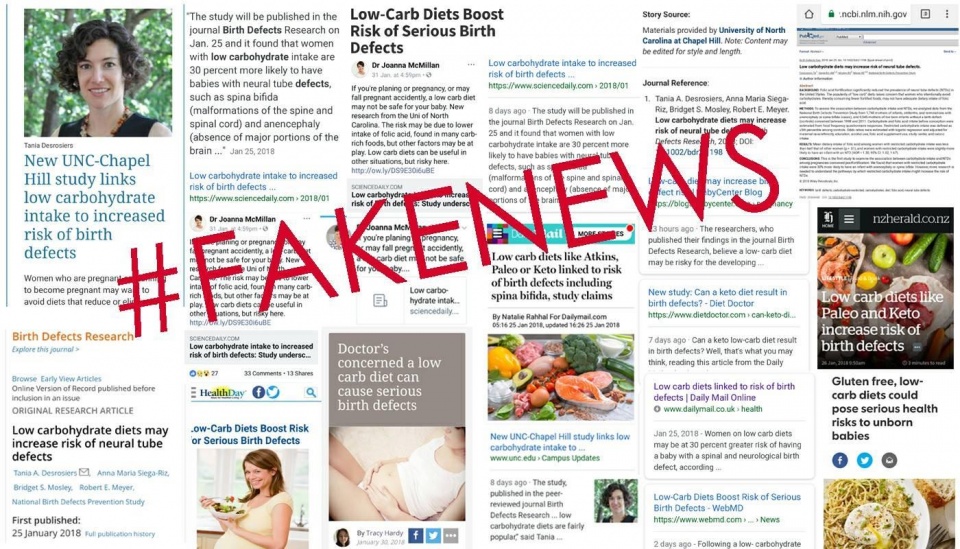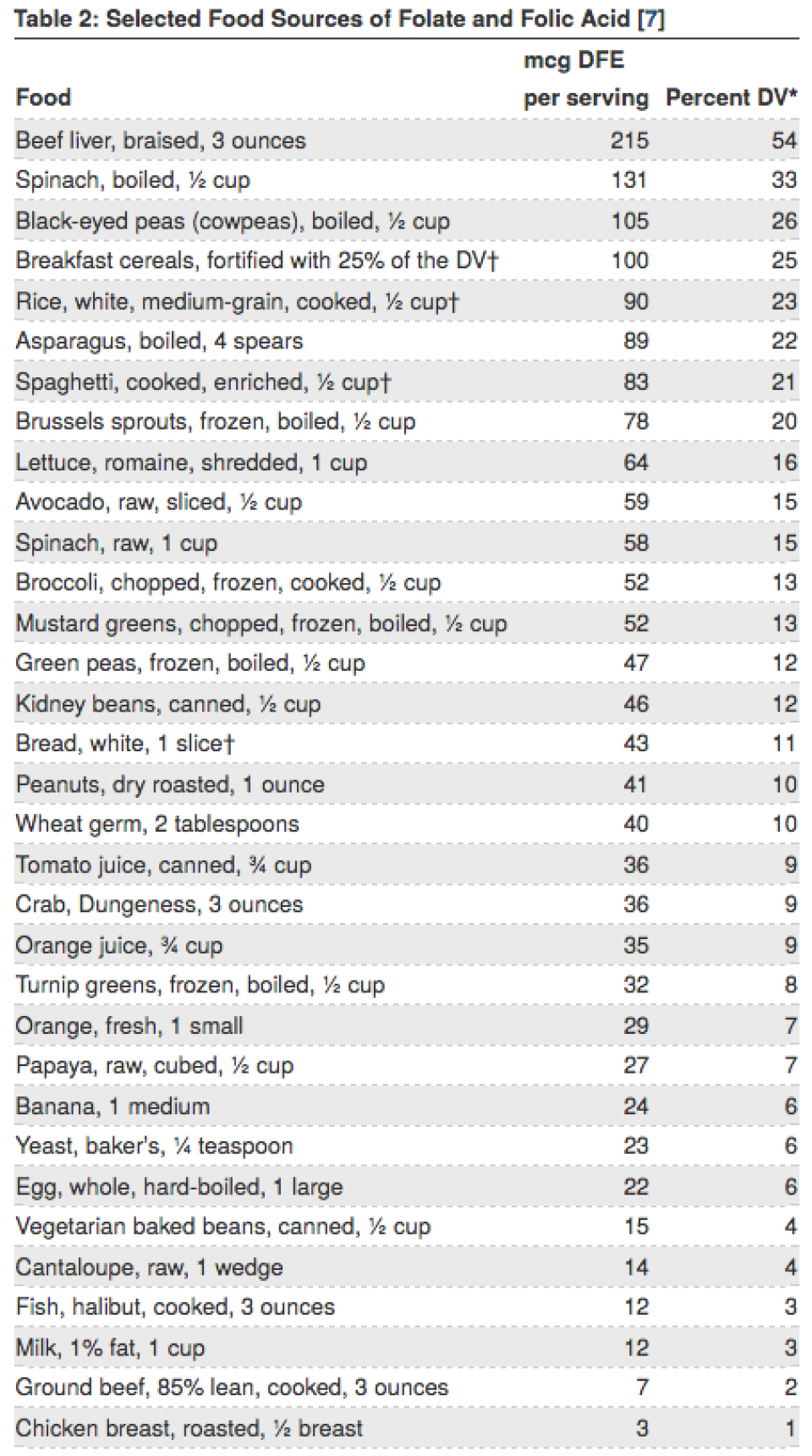February 2nd is Groundhog Day and it just so happens that it is also my Birthday.
While many days can feel like Groundhog Day as Gary and I try over and over to get the health benefits of Low Carb Healthy Fat principles into the dietary and health guidelines, one day it will happen, I know...

This year I woke to the best Birthday present;- the debunking of #fakenews by my dear friend Zoë' Harcombe.
When I saw the headlines 'Low Carb Diet Causes Birth Defects' hitting the news last week I was horrified.
Scare tactics targeting women at their most vulnerable time is unforgivable. Research headlines questioning the health benefits of Low Carb Healthy Fat principles during pregnancy makes absolutely no sense when the cereals, breads, rice and pasta being recommended by the authority's are simply fortified processed foods with little nutritional value!

The word folate is actually derived from foliage, or leaves, referring to the leafy green vegetables that contain such high concentrations of the vitamin. It is also found naturally in nuts, beans, peas, fruit, dairy products, poultry and meat and eggs, with seafood, asparagus, Brussels sprouts, spinach and yeast extract (marmite and vegemite) among the foods with the highest levels of folate. All fresh seasonal produce encouraged in an LCHF diet.
While liver also has exceptionally high levels of folate, it has not been recommended during pregnancy till now. Lily Nichols, a Registered Dietitian, debunks the myth about liver and the concern about high levels of Vitamin A in her new book Real Food for Pregnancy.

Folate, a water-soluble B9 vitamin, is necessary for healthy growth and development. It cannot be stored, therefore we should eat folate-rich foods every day. Folate is important for everyone as it is essential for brain development and function and involved in our red blood cell synthesis. Folate improves the efficiency of DNA repair & replication.
Folate is particularly important to the healthy development of babies in early pregnancy. A baby’s growth is the most rapid in the first weeks of life, often before a woman is aware she is pregnant. The neural tube closes and fuses very early in pregnancy. If it doesn’t close, the result is a neural tube defect (NTD) such as spina bifida.
The team at Authority Nutrition state "There are several distinct differences between folate and folic acid.
"While folate occurs naturally in foods, folic acid is synthetic. The human body doesn't seem to handle folic acid very well, and has trouble converting it into the active form of vitamin B9.
"This can cause un-metabolized folic acid to build up, which may have negative health effects. Luckily, there are many alternatives to folic acid
"These include methyl folate supplements and a huge variety of healthy, whole foods."
Therefore, we do not need to eat fortified food to get the recommended daily allowance of Folate.
What was I going to do to stop the spread of this misinformation?
I wrote to the person I trust most to disseminate the 'science' and this is what she has found:-
Thank you Zoë Harcombe ♡

As any sensible person knows, fortifying a food is an admission that it is lacking in nutritional value. If it were nutritious, it wouldn’t need to have nutrients added. I call fortified food “a high calorie vitamin/mineral tablet.” If your diet lacks certain nutrients a) improve your diet or b) take a supplement. However, there are no circumstances when it is a good idea to take a supplement in the form of bread or cereal. Why would you want the calories, carbohydrates, sugar and flour that come with fortified fake food, when you could eat real food and/or take a tablet, which contains no calories/carbs/sugar or flour?!
A study was published in the journal “Birth Defects Research” on 25th January 2018. A press release accompanied it claiming that “women with low carbohydrate intake are 30 percent more likely to have babies with neural tube defects, when compared with women who do not restrict their carbohydrate intake.
Newspapers worldwide reported the story, reiterating the scary headline that “Women on low carb diets may be at 30 percent greater risk of having a baby with a spinal and neurological birth defect, according to a new study.
One of my lovely subscribers, Belinda Fettke, alerted me to the article and asked me to take a look at it as my weekly newsletter. So I did.
It was a case control study.
It was fundamentally flawed in a number of ways:
1) The characteristics table compared the control with the control, not the control with the cases.
2) The ‘correct’ characteristics table was available, as a Supplemental, but neither table included important data related to the study – not least carbohydrate and folate/folic acid intake.
3) Consequently the study did not adjust for material differences between the control and case groups.
4) The study could not make the conclusion that it did.
I sent the email below to the authors on 30th January and sent a copy to the journal editor. I was minded to wait until I received a reply before posting this openly, but I have been asked to post this by a number of people who know that I found retraction-level errors because the headlines generated by this article need to be countered immediately.
Pregnancy is worrying enough for women and men without fabrications like this trying to scare the life out of them.
